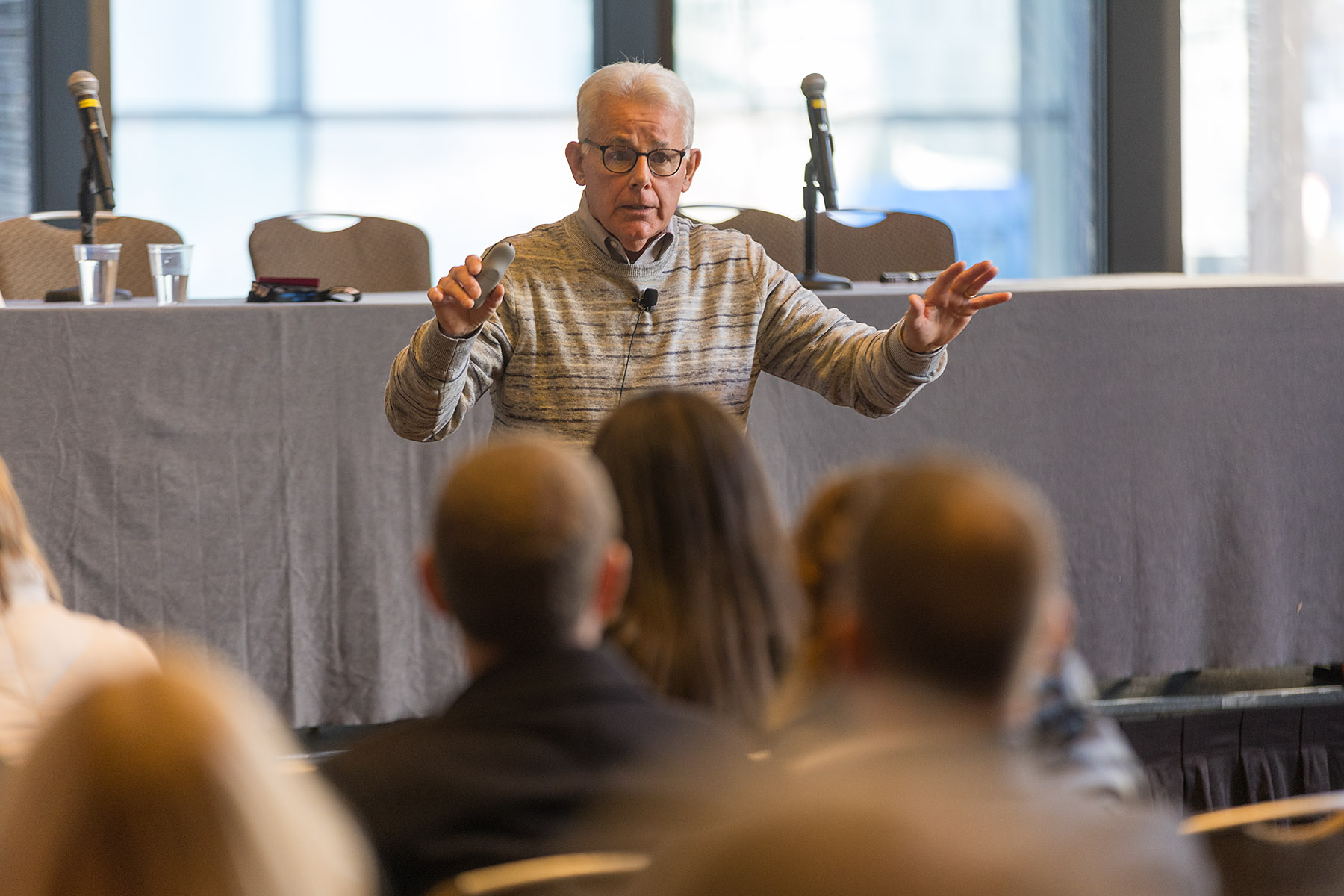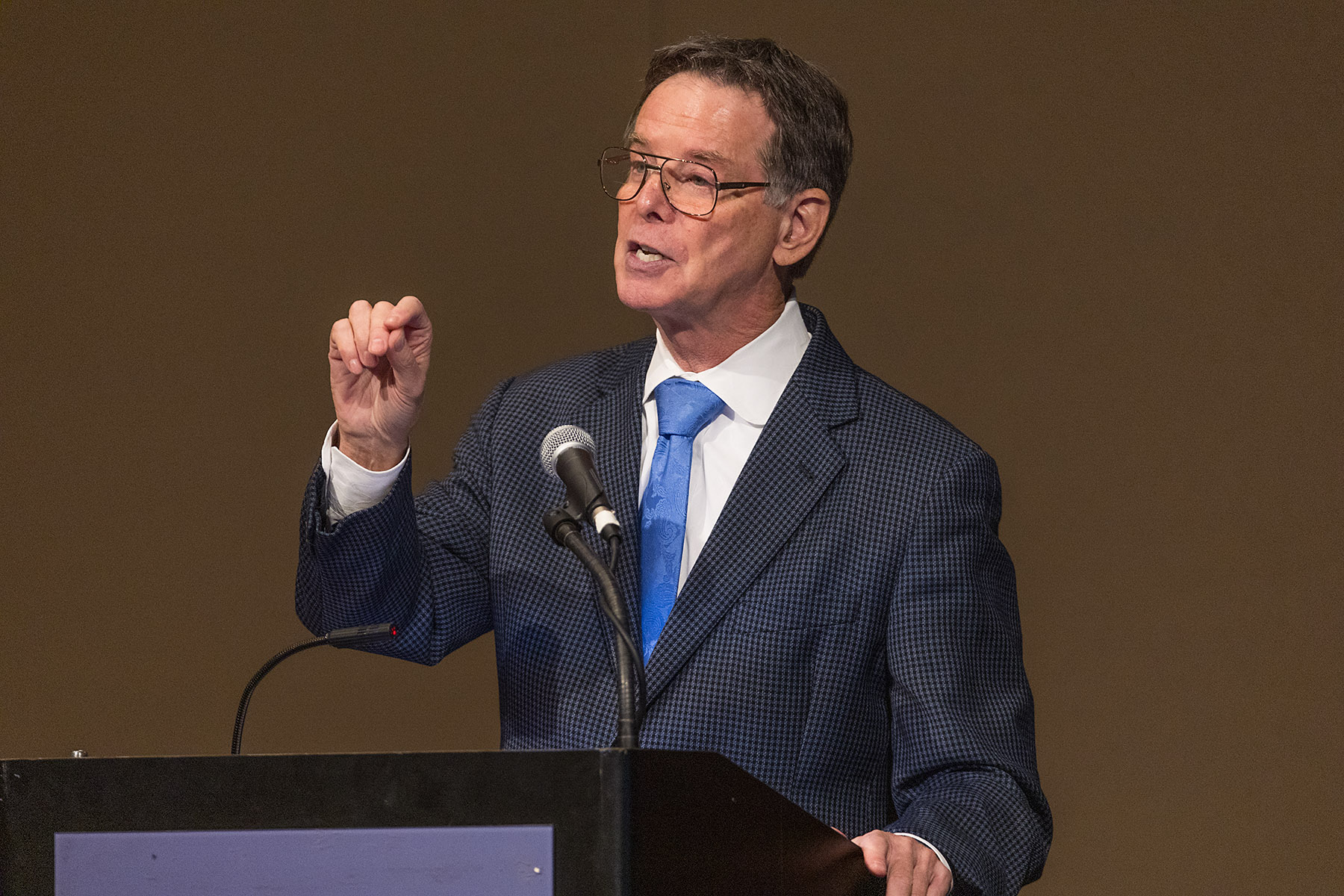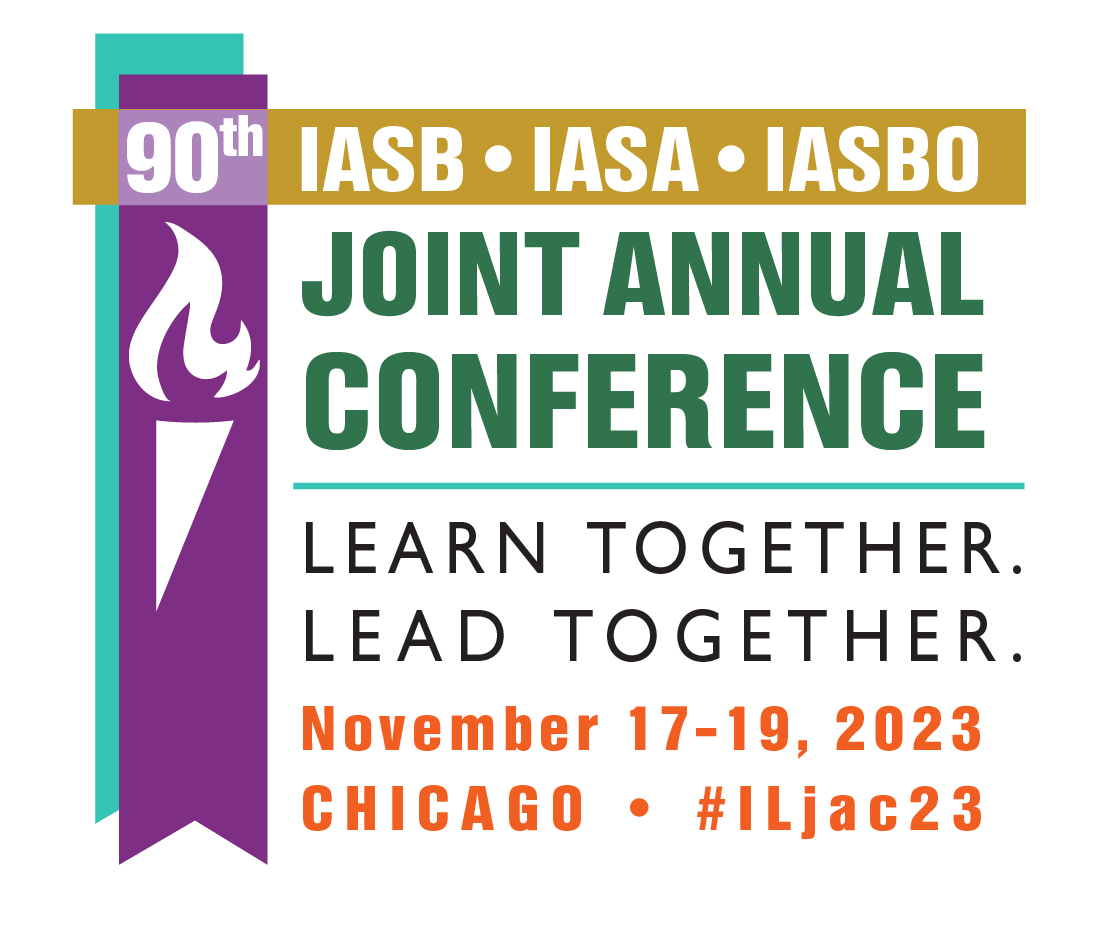Spotlight Sessions Shine Light on Education Issues for School Leaders
New to the Joint Annual Conference in 2023 were two Spotlight Sessions that featured presentations on topics appealing to the ideals of the educational leadership community. Both sessions took place on Saturday, November 18 at 1:30 p.m.
“Practical and Doable Climate Changers,” was presented by Jim Burgett. A popular speaker and fixture of the Annual Conference for years, Jim Burgett is an educator, author, difference-maker, and president of The Burgett Group.

His one-hour presentation shared the collected wisdom from top-notch educational leaders, board members, and change agents. Burgett focused on what school leaders can do to change the climate and improve the educational environment in their districts.
“A positive school climate is a social and educational environment that sets a positive setting for learning, academic achievement, and student growth,” said Burgett, in his 47th year at the Joint Annual Conference. “And I like to add, the happiness of all the people who work in the system.”
Burgett notes of school climate, “You can sense it, but only when students are present” and notes that it exists in the hallways, classrooms, offices, everywhere, Burgett suggests “Top 10 Ways to Change the Climate” starting with calculating the need and identifying what needs to be fixed.
The second Spotlight Session highlighted the six generations who make up current society. The two-hour panel was delivered by Chuck Underwood, the founder/principal of The Generational Imperative, Inc. Underwood is host of the PBS television series “America’s Generations with Chuck Underwood” and one of the pioneers who created, developed, and popularized the field of generational study.

“Generational Strategies: Because Education is Still About People” covered the generational groups of people currently living and how their values, ideas, and demands are unique and influential to our lives. Citing a set of core values that each generation has adopted as their own, Underwood explains the importance of understanding these core values as board members and administrative leaders are in the business of persuasion.
“Education is the absolute centerpiece of the sometimes very messy America,” said Underwood. “Our formative years mold our core values. And our core values guide our decisions. We keep some and discard other core values.”
Underwood emphasizes these points as it is important to understand the generational training, knowledge, and strategies of each group when using tactics and persuasion to deal successfully with each generation.
| Name | Birth Year | Age |
|---|---|---|
| G.I. | 1901–1926 | 97+ |
| Silent | 1927-1945 | 78-96 |
| Boomer | 1946-1964 | 59-77 |
| Gen X | 1965-1981 | 42-58 |
| Millennials | 1982-2000 | 23-41 |
| Gen Z | 2001-2005... | 18-22 |
